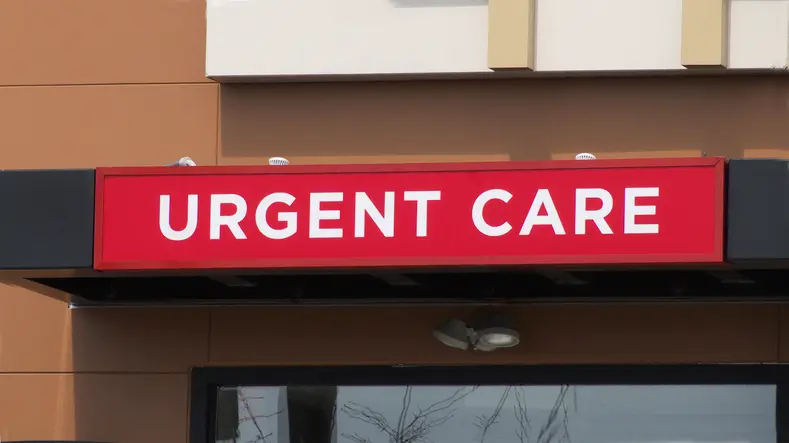Understanding the Value of Urgent Treatment Services for Non-Life-Threatening Medical Issues
The relevance of immediate treatment solutions for non-life-threatening clinical issues can not be overemphasized, especially in today's health care landscape. By recognizing the advantages of urgent treatment, such as reduced delay times and cost performance, one can better appreciate their duty in individual health administration.
What Is Urgent Care?
Immediate care refers to a group of medical solutions designed to resolve non-life-threatening conditions that call for immediate interest but do not necessitate a visit to the emergency situation room. These centers give a bridge in between medical care and emergency services, supplying easily accessible healthcare choices for people experiencing acute medical concerns, such as minor fractures, sprains, infections, or extreme diseases that develop all of a sudden.

The scope of solutions offered by urgent care centers can differ but generally consists of treatment for common ailments like colds, influenza, and allergic reactions, as well as small injuries (urgent care). In addition, many urgent care facilities offer preventative solutions, such as inoculations and physical exams, to resolve more comprehensive health and wellness requirements. By providing a convenient choice for urgent clinical problems, these facilities play a vital role in the medical care continuum, making sure that patients obtain suitable treatment when they need it most
Benefits of Urgent Treatment Provider
Many people find that utilizing urgent treatment solutions offers substantial benefits over conventional emergency space brows through or waiting for a primary care visit. Urgent care centers typically have shorter wait periods, permitting individuals to obtain timely medical focus when they require it most.
Another advantage is the extended hours of operation. Several urgent care facilities are open evenings and weekend breaks, accommodating individuals that might not have the ability to see their main care doctor throughout routine office hours. This adaptability makes it less complicated for patients to access treatment at their convenience.
Additionally, immediate treatment solutions often provide a cost-efficient choice to emergency situation spaces. Individuals often deal with lower co-pays and overall expenses when looking for therapy for small conditions at urgent treatment facilities as opposed to medical facility emergency situation departments.
Last but not least, urgent care facilities are furnished to handle a variety of non-life-threatening concerns, offering a broad variety of services under one roofing system. This extensive approach not just streamlines the therapy process yet additionally improves patient satisfaction by providing prompt and reliable care.
Usual Conditions Dealt With
What kinds of non-life-threatening conditions can people expect to obtain treatment for at urgent care? Urgent care centers are equipped to manage a wide variety of usual medical problems that call for prompt focus yet do not present a prompt risk to life. These facilities commonly deal with problems such as small fractures, sprains, and pressures, offering essential take care of injuries that visit this web-site take place during everyday tasks or sporting activities.
In addition, clients often look for therapy for breathing infections, consisting of colds, flu, and bronchitis, where timely treatment can relieve signs and symptoms and stop difficulties. Skin problem such as Visit This Link rashes, insect bites, and small burns are additionally commonly attended to, as prompt treatment can minimize pain and lower the risk of infection.

Comparing Urgent Treatment and Emergency Spaces

One considerable difference lies in delay times; immediate treatment facilities usually have shorter wait times contrasted to emergency situation areas, which go right here can be crowded with even more vital situations. This efficiency allows clients to receive prompt therapy for their conditions.
From a financial perspective, urgent care check outs tend to be less costly than emergency clinic check outs. Insurance copays and out-of-pocket expenditures are typically lower at immediate treatment facilities, making them a more affordable option for non-emergency scenarios.
Exactly How to Choose an Urgent Care Center
Choosing the right urgent treatment facility can dramatically boost the high quality of treatment received throughout a non-life-threatening medical problem. When picking an immediate care facility, several crucial factors must be considered.
First, examine the center's accreditation and licensing. Some urgent treatment centers specialize in specific areas, while others offer detailed treatment for various medical problems.
Furthermore, take into consideration the area and hours of operation. An easily located facility with prolonged hours can be crucial for timely care. It's likewise advisable to check the facility's wait times and client evaluations, which can offer insights into the overall client experience.
Final Thought
To conclude, immediate care services play a crucial function in attending to non-life-threatening clinical problems effectively. By providing instant interest for numerous problems, these facilities enhance patient access to prompt care while minimizing the stress on emergency rooms. The advantages of immediate treatment, consisting of expanded hours and reduced expenses, make them a beneficial alternative for people looking for prompt treatment. Ultimately, recognizing the value of immediate care facilities adds to improved medical care monitoring and individual fulfillment.
 By using a convenient choice for urgent medical concerns, these facilities play an essential duty in the healthcare continuum, making certain that clients get appropriate treatment when they require it most.
By using a convenient choice for urgent medical concerns, these facilities play an essential duty in the healthcare continuum, making certain that clients get appropriate treatment when they require it most.Numerous people find that using immediate care solutions supplies considerable advantages over standard emergency room visits or waiting for a main treatment appointment. Numerous immediate care facilities are open nights and weekends, fitting people that may not be able to see their main care medical professional throughout regular office hours. Immediate treatment facilities are designed to attend to non-life-threatening problems, such as minor fractures, infections, and health problems, supplying a convenient choice to emergency spaces for those in demand of prompt treatment. Some urgent care facilities specialize in details areas, while others offer detailed treatment for numerous clinical concerns.